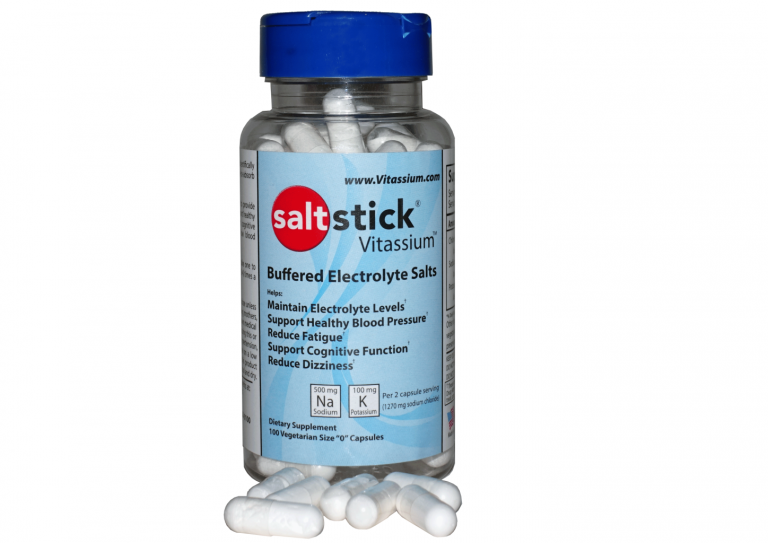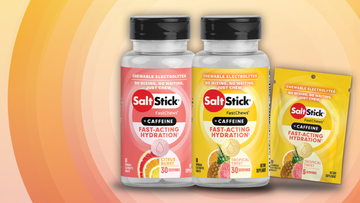
High levels of thirst plague endurance athletes who commonly exercise in the heat and humidity for several hours a day. However, hydration can be a tricky thing, and it can sometimes seem as if your thirst never goes away – despite frequent urination. In this case, one of several things could be at play, ranging from dehydration to changes in diet. In this blog post, we explore some of the common reasons for chronic thirst, as well as symptoms that are associated with each possible condition. It is important to note that if you suspect something like dysautonomia or diabetes, the best thing you can do is consult a physician for next steps. You will not want to avoid getting medical attention, and it is important to seek medical help sooner rather than later.
Reason 1: Dehydration
We run the risk of sounding obvious, but it remains true that the most common cause for thirst is dehydration. Fluid levels in the blood result from a complex mix of inputs, including water and electrolyte intake, length and intensity of activity, and external temperature. A change in any one of these variables can alter hydration levels, especially if you have been traveling. If you feel dehydrated, you should also examine the weather conditions, as varying levels of heat and humidity can affect sweat rates. For instance, if you have been training in cold weather for most of the winter and take a trip to Florida or anywhere warm, you will have to consume greater quantities of water and electrolytes to rehydrate. Finally, if you have recently suffered from a bout of stomach illness, you will need extra fluid, as vomiting and diarrhea can cause severe dehydration. Common symptoms of dehydration include:- Headache
- Fatigue
- Dark-colored urine
- Dry mouth and skin
What to do: If you find yourself suffering from dehydration, a simple fix is to grab a glass of water and sip slowly. Alternatively, de-caffeinated tea is a good substitute. Do you need salt? If you are dehydrated due to exercise, you may need extra salt along with water. However, be sure to avoid over-hydration, which we cover in the next section. If you are dehydrated due to a stomach illness, you will want to consume both water and electrolytes to help regain hydration.
Reason 2: Over-hydration
As we mentioned earlier, hydration results from both water and electrolyte intake. Hyponatremia, a dangerous condition that results from low blood-sodium levels, is caused by consuming too much water and not enough salt. Hyponatremia is most common in long periods of exercise in the heat, which tempts athletes to overconsume water without sufficient salts in their nutrition plan. For instance, a New York Times article points out that marathon runners who take longer than four hours to finish a race are most prone to hyponatremia-related deaths. If you try to counteract your thirst by drinking copious amounts of water with no additional electrolytes, you run the risk of becoming over-hydrated. Over-hydration symptoms look fairly similar to dehydration symptoms, but a good way to tell the difference is to measure your salt intake to see if it is lower than normal. Additionally, if your urine is clear but you still feel dehydrated, you are probably over-hydrated. Common symptoms of over-hydration include:- Headache
- Confusion/fatigue
- Nausea
- Frequent, clear-colored urination
What to do: Sprinkle some extra salt on your next meal, or consume 1-2 SaltStick Caps, which provide a balanced supply of all electrolytes lost through sweat: sodium, potassium, calcium and magnesium. Do you need salt? Yes, especially if you have been outdoors or in the heat recently. Try consuming 1-2 SaltStick Caps or 3-4 SaltStick Fastchews for a fast-absorbing source of electrolytes.
Reason 3: POTS, Dysautonomia
Dysautonomia is an umbrella term for several different chronic conditions that cause a malfunction of the Autonomic Nervous System, which regulates functions including heart rate, blood pressure, digestion and body temperature. One common form of dysautonomia is postural orthostatic tachycardia syndrome (POTS), which causes extremely low blood pressure, among other symptoms. POTS patients are often advised to dramatically increase their intake of water and salt to help boost blood volume. While the USDA recommends adults consume approximately 2,300 mg of sodium per day, POTS patients are often advised to consume up to 3,500 mg or more of sodium per day. Last year, Dysautonomia blogger Kind of Broken published a SaltStick guest post, which covers the link between salt intake and POTS symptoms. For the full explanation, we encourage you to check out the post here, but the takeaway is that blood pressure is maintained through a balance of sodium and potassium ions in the blood stream. In a healthy person, this ratio promotes normal blood pressure. However, people suffering from POTS often have extremely low blood pressure. To counteract this, POTS patients are often advised to consume large amounts of sodium in order to overpopulate their bloodstream with sodium ions. This, in turn, boosts blood pressure to a more-normal range.
Common symptoms of POTS include:
- Lightheadedness
- Fainting
- Chest pains
- Shortness of breath
- GI upset
- Shaking
- Exercise intolerance
- Temperature sensitivity
What to do: Before taking steps to mitigate Dysautonomia or POTS, it is important that you consult with a physician, who will help you determine appropriate pharmacological and lifestyle changes. If you are advised to consume extra sodium and water to help mitigate symptoms, you may find SaltStick Vitassium useful for counteracting stomach discomfort.
Do you need salt? It is up to your physician to make the final call, but many POTS patients have found relief from their symptoms (including lightheadedness, stomach upset, fainting and exercise intolerance) through increasing their sodium and water consumption.
Reason 4: Diabetes
Due to the body’s hampered ability to regulate blood sugar, people with diabetes can often have blood sugar levels outside of a healthy range. To counteract the potentially harmful effects of levels that are too high, the body will increase urination rates, as a way to expel excess blood sugar. This causes dehydration, and thus, increases thirst. It is why one of the key symptoms of undiagnosed Diabetes is constant thirst and urination.
Common symptoms of Diabetes include:
- Extreme fatigue
- Cuts and bruises that are slow to heal
- Blurred vision
What to do: Consult with a physician if you believe you are suffering from symptoms of Diabetes.
Do you need salt? Probably not, as Diabetes-related thirst is caused by blood sugar levels, and not electrolyte imbalances.
Reason 5: Dry Mouth
One side effect of many medications is dry mouth, or a lowered ability to produce saliva. This, while not an indicator of dehydration, can cause you to feel thirsty. Two common over-the-counter medications that cause dry mouth include antihistamines and Dramamine. Excessive alcohol consumption or smoking tobacco can also cause dry mouth.
Beyond thirst, an unfortunate side effect of lowered saliva production is bad breath, as saliva helps to keep bad-breath-causing bad bacteria at bay. Proper hydration is one of the best ways to prevent bad breath, so remember to keep drinking fluids.
Common symptoms of dry mouth include: Given that dry mouth is a symptom itself, there are not any associated symptoms. However, take note of your medical intake, your alcohol consumption and your tobacco usage. If your dry mouth cannot be explained by any of these things, you may want to consult a physician.
Do you need salt? Probably not.
Reason 6: Dieting
Some foods and drinks, such as the ones listed below, have a diuretic effect, meaning the body extracts water from the bloodstream to filter toxins and other compounds into the kidneys. These include:
- Alcohol
- Coffee
- Asparagus
- Celery
- Brussels sprouts
- Beets
- Cabbage
- Cucumber
Additionally, certain diets, such as the ketogenic diet, can also promote large amounts of fluid loss. Low-carb diets reduce blood insulin levels, which promotes fluid and sodium excretion. Because low-carb diets are usually accompanied by a reduction in the sodium-to-potassium ratio (due to an increase in consumption of potassium-rich fruits and vegetables), this problem is compounded, exacerbating the thirst mechanism.
An easy fix to this problem is to simply increase sodium intake if you are on a low-carb or ketogenic diet, all under the supervision of a physician.
Common symptoms include:
- Lightheadedness
- Fatigue
- Low-carb dieting habits (not a symptom, but an associated trend)
What to do: If you recently changed your eating to accommodate lower-carbohydrate diet and are suffering from lightheadedness and fatigue, it may be worth analyzing your sodium and potassium intake. The USDA recommends that healthy adults consume up to 2,300 mg of sodium and 4,700 mg of potassium. Each person’s needs are unique, but if your electrolyte ratios differ greatly from these recommendations, you may want to take steps to correct the balance.
Do you need salt? Depending on what you find when measuring your electrolyte intake, you may or may not want to add extra salt to your meals.
Important Note: The above should not be construed as medical advice. Contact your physician before starting any exercise program or if you are taking any medication. Individuals with high blood pressure should also consult their physician prior to taking an electrolyte supplement. Overdose of electrolytes is possible, with symptoms such as vomiting and feeling ill, and care should be taken not to overdose on any electrolyte supplement.







